Earth
-
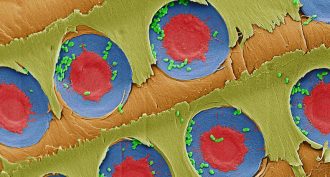 Tech
TechBranching out for safer water
Clean drinking water could be only a tree branch away, a new study finds.
By Beth Geiger -
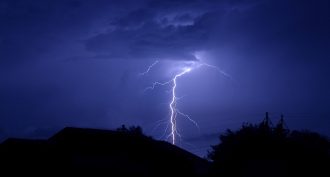 Earth
EarthEarthquake-triggered lightning?
An experiment with beads offers support for the claim that a rare type of lightning may accompany some quakes.
By Andrew Grant -
 Earth
EarthIntel STS finalist takes on arsenic poisoning
Concerned about arsenic poisoning in Bangladesh, Intel Science Talent Search finalist Thabit Pulak invented an affordable filter to help people remove this toxic pollutant from their drinking water.
-
 Earth
EarthIntel STS finalist brings earthworms to the big time
Earthworms and charcoal help plants resist infections, according to research by Anne Merrill, a finalist in the 2014 Intel Science Talent Search.
-
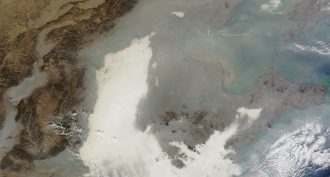 Environment
EnvironmentChina exports pollution alongside goods
Many companies have moved the plants that make their products to developing countries, such as China. But the pollution linked to making those products can travel around the world.
-
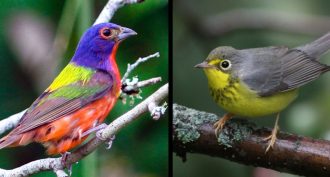 Animals
AnimalsBirds versus windows
Buildings in the United States can be deadly obstacles to flying birds. A new study estimates that as many as 1 billion birds die every year after colliding with windows. And low buildings — not skyscrapers — account for most of those deaths.
-
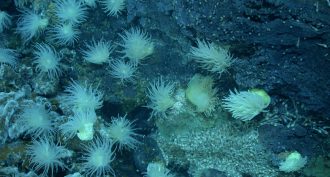 Earth
EarthMining metals amidst seafloor animals
Miners may need to get their feet — and everything else — wet as they carefully seek out loads of copper and other valuable natural resources.
By Sid Perkins -
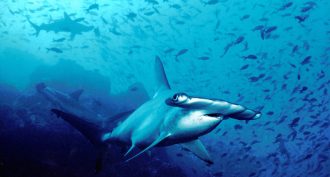 Animals
AnimalsSharks become science helpers
Jaws may scare beachgoers. But sharks bring a smile to some environmental scientists, who are using the toothy fishes to collect data on the ocean.
By Beth Mole -
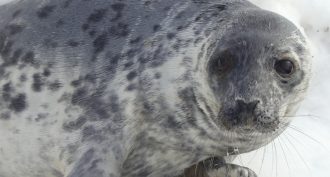 Microbes
MicrobesArctic thaw is spreading wildlife diseases
Polar animals are encountering new, killer parasites as melting ice unlocks their access to new hosts.
-
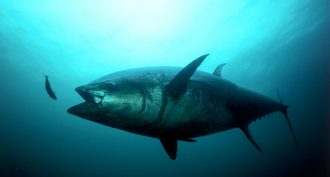 Environment
EnvironmentOil harms fish hearts
Oil spills in the ocean can perturb the beating of heart cells.
By Beth Mole -
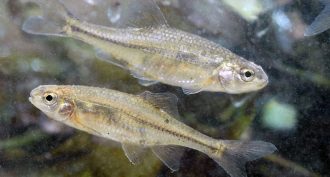 Animals
AnimalsFirst living fish leaves ‘endangered’ list
Twenty-one years ago, a minnow facing a high risk of extinction was placed on the U.S. Endangered Species List. With help from scientists, the fish appears to have largely recovered. It’s the first ‘listed’ fish to do so.
-
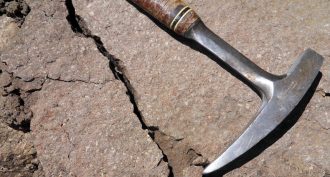 Environment
EnvironmentDoes lightning sculpt mountains?
A new study sparks debate about how much rubble on a mountainside has been blasted loose by powerful bolts from the sky.
By Sid Perkins